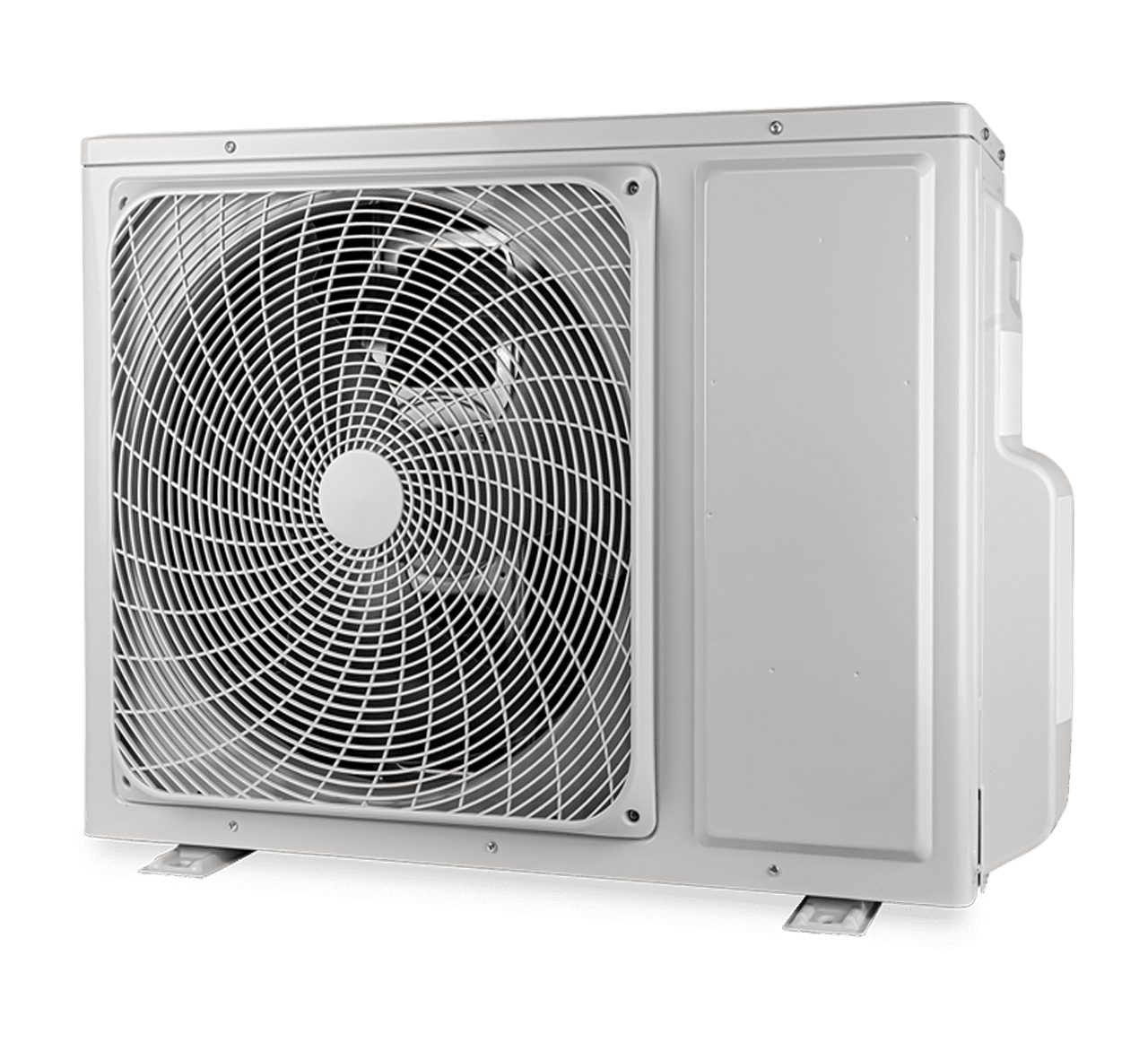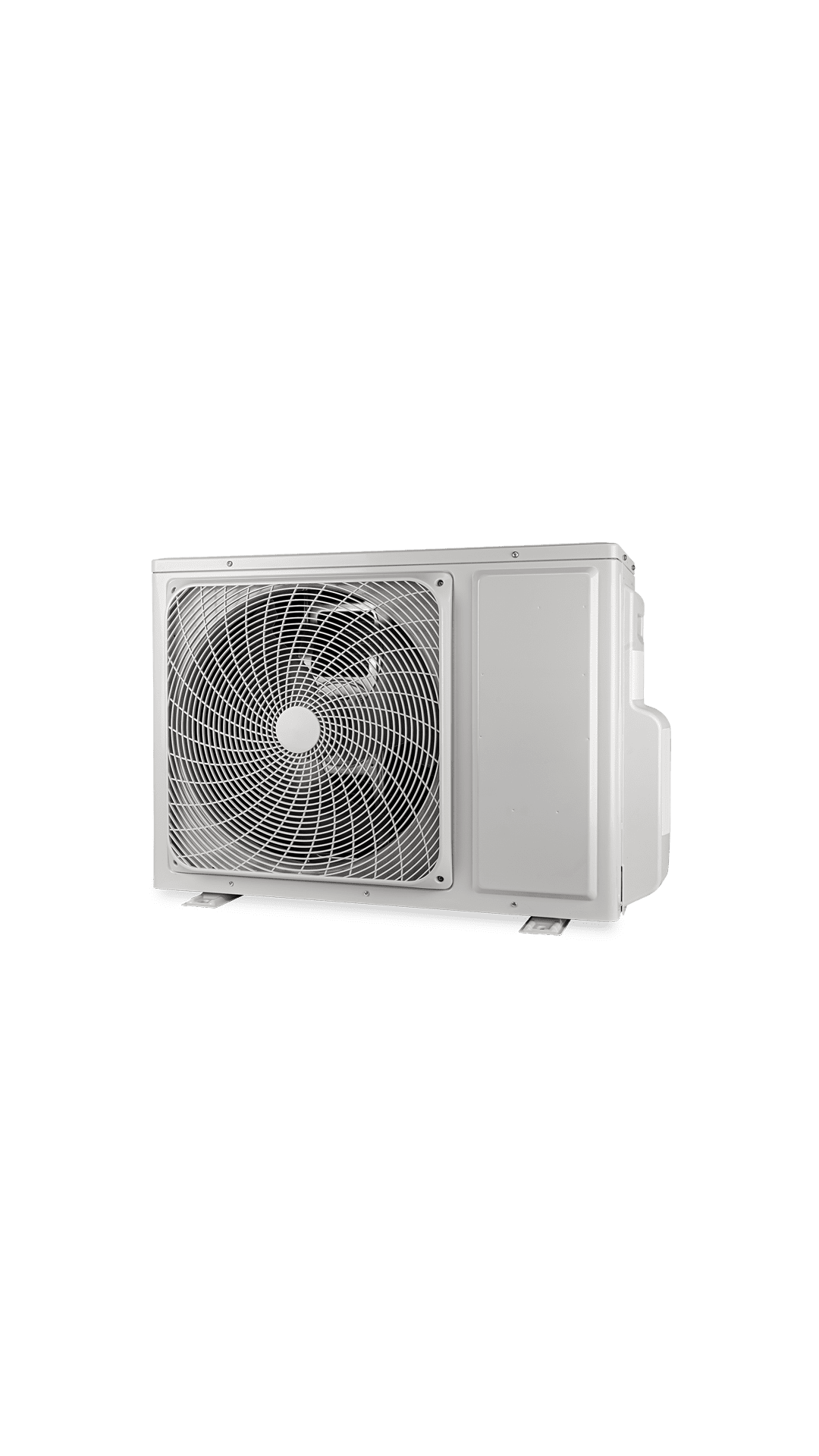Heating and Cooling Services Vancouver Island Homeowners Count On
For over 20 years, The Comfort Group has been the go-to choice for heating and cooling services across Vancouver Island. Our certified specialists work year-round to ensure your home remains comfortable in every season.
From setting up a new furnace to performing seasonal AC tune-ups or evaluating your entire HVAC system, our knowledgeable professionals deliver timely, high-quality service with dependable outcomes. Don’t let HVAC issues interrupt your daily comfort—count on The Comfort Group for solutions that come with a satisfaction guarantee.

For more details, read our reviews:
Read our reviewsFind a home HVAC technician near you:
Proudly serving Vancouver Island and the surrounding communities, The Comfort Group expert HVAC technicians provide dependable heating, cooling, and indoor comfort solutions wherever you call home.

We know that time is critical when things go wrong.
When unexpected problems arise, quick action matters. That’s why our team is prepared to handle heating, cooling, plumbing, or electrical emergencies at any hour. Whether it’s the middle of the night, a weekend, or a holiday—you can count on us to arrive same-day.
Our certified professionals specialize in a wide range of services, from furnace troubleshooting and AC installation to plumbing fixes and electrical work. We know how disruptive sudden issues can be, so we focus on delivering fast, effective solutions that restore comfort without delay.
Find the Right HVAC Solution
Unsure which setup is right for your home? We’ll evaluate your space and recommend systems that align with your needs, layout, and budget. Whether you’re booking a new installation or scheduling routine upkeep, we’ll make sure everything runs smoothly from the start.
Fast Service & Savings
Need service now and want to save in the process? Our responsive team ensures you’re never waiting long, while offering efficient service that helps protect your HVAC investment. Expect timely appointments and practical advice that keeps your home comfortable—and your wallet happy.
Experienced, Skilled & Ready to Help
With years of hands-on experience across all types of HVAC equipment, we’re trained to work on any brand or model. We stay current with emerging technologies to ensure top-tier service. From last-minute repairs to scheduled maintenance, homeowners across Vancouver Island rely on our quick, dependable HVAC, plumbing, and electrical support.

The Comfort Group proudly supports homeowners throughout Vancouver Island with expert HVAC services designed to enhance comfort indoors—wherever you call home.
Need quick, dependable help with your heating or cooling system? Give us a call at (778) 716-2498 to connect with a specialist, or use our online booking tool to set up your visit today.
Book your Vancouver Island heating & cooling consultation now.
Our HVAC Services
Having control over your home’s climate is more than just about comfort; it’s vital for ensuring your property and family remain safe through Vancouver Island’s unpredictable seasons. The Comfort Group provides an extensive range of HVAC services that cater to all your comfort needs year-round. With our knowledgeable team, we handle everything from system installations and routine maintenance to emergency repairs, all tailored to suit your home.
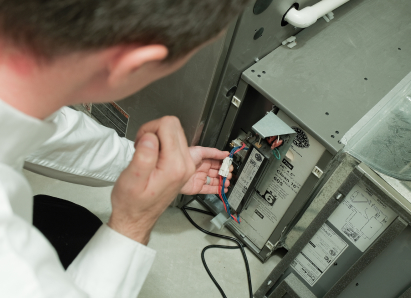
Heating Services
Boilers
We specialize in the setup, upkeep, and urgent repairs of both hot water and steam boiler systems, ensuring efficiency and long-term reliability.
Centralized Heating Systems
Our team offers complete solutions for centralized heating systems, ensuring consistent warmth and comfort throughout every room of your home.
Furnace Installation
We install high-performance furnaces tailored to your home’s size and energy needs, providing you with warmth that’s both reliable and energy-efficient.
Furnace Repair
No matter the brand or model, we offer repair services to restore your furnace quickly, with 24/7 availability for those unexpected breakdowns.
Heat Pumps
Whether it’s heating your home in winter or cooling it in summer, our heat pump systems are installed and maintained for reliable performance year-round.
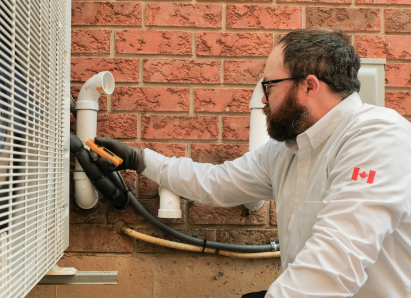
Air Conditioning Services
AC Installation
We install air conditioning systems that are carefully sized and positioned to maximize cooling efficiency throughout your home during Vancouver Island’s summer heat.
AC Inspection
Through comprehensive inspections, we identify any potential issues before they cause major breakdowns, ensuring your system operates smoothly all season.
AC Repair
From minor fixes to major repairs, we offer fast and dependable air conditioning repair services for all models, including emergency repairs.
Heat Pumps
Our energy-efficient heat pump systems keep your home cool in the summer and warm in the winter, offering a cost-effective all-in-one solution for year-round comfort.
UV Air Purifiers
Our UV air purifiers help improve indoor air quality by reducing harmful particles, integrating seamlessly with your existing HVAC system.
Humidifiers
We install and maintain humidification systems designed to keep your home’s air balanced, ensuring optimal humidity levels for better comfort and air quality.
Duct Cleaning
Our duct cleaning services remove accumulated dust and allergens, improving air flow and helping your HVAC system run more efficiently.

Water Heaters
Water Heater Repairs
We offer comprehensive repair services for all types and models of water heaters, quickly addressing any issues that arise.
Water Heater Installation
Our experts ensure your new water heating system is correctly installed with proper sizing, connections, and setup. This includes the safe removal of old units and installing energy-efficient replacements for lasting performance.
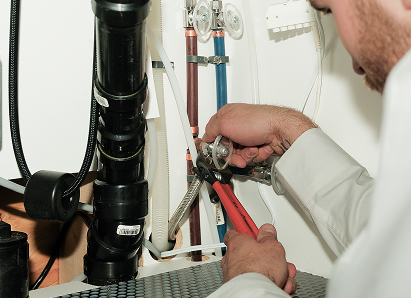
Plumbing Services
Faucets
Whether you need new faucets installed or repairs for existing ones, we provide expert services to ensure proper functionality and design in your kitchen or bathroom.
Emergency Plumbing Services
When plumbing issues can’t wait, our team provides immediate, 24/7 emergency response to address your urgent plumbing needs.
Kitec Plumbing
If your home has Kitec plumbing, we specialize in the safe replacement of this outdated system to prevent future issues.
Plumbing Repairs
Our team handles all plumbing repairs, whether it’s fixing a leaky faucet or addressing a major pipe failure.
Sinks
Professional sink installation and upkeep services for your kitchen, bathroom, or utility rooms, ensuring durability and function.
Sump Pumps
Protect your home from flooding with our sump pump installation, maintenance, and repair services, ensuring your basement stays dry.
Toilets
We offer quick and efficient toilet repairs and replacements with minimal disruption to your home.
Water Quality
We provide tailored water filtration and treatment systems to improve water quality in your home, safeguarding both your health and your plumbing.
Hydro-Jetting
Using high-pressure water jetting, we clear tough blockages and buildup in your pipes, ensuring a thorough cleaning of your plumbing lines.
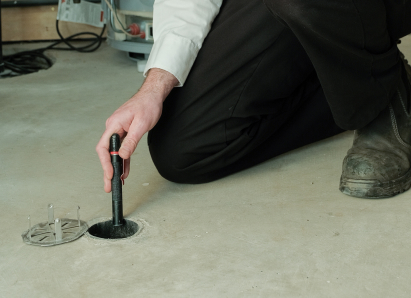
Drain and Sewer Systems
Waterproofing & Foundation Repair
Our waterproofing solutions and foundation repair services address issues of water intrusion, helping to maintain a dry and stable basement.
Drains
We perform regular drain maintenance to prevent blockages and ensure efficient water flow throughout your home.
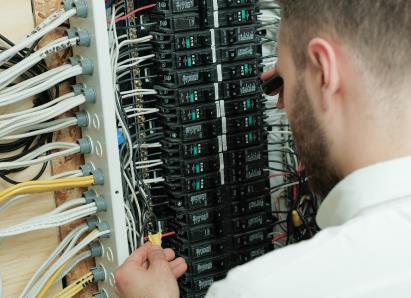
Electrical Services
Electrical Installations
Our team provides expert installation of new electrical systems and fixtures throughout your home, ensuring everything is safely and properly installed according to code.
Electrical Panel Upgrade
We offer full electrical panel upgrades, enhancing your home’s electrical capacity and ensuring it meets modern safety standards.
Electrical Wiring
Whether it’s for home renovations, additions, or rewiring older properties, we handle all electrical wiring projects with precision, ensuring compliance with the latest electrical codes for optimal safety and performance.
EV Charger Installation
We professionally install electric vehicle charging stations, ensuring they’re correctly connected and equipped with the necessary safety features for home use.
Pot Light Installation
Our installation services for recessed lighting include careful placement, wiring, and finishing to ensure an attractive and safe lighting setup that blends seamlessly with your home’s aesthetic.
Vancouver Island’s HVAC Service Professionals Since 2004
21+ Years of Proven Experience You Can Count On
For more than nine decades, we’ve been the trusted name for HVAC services across Vancouver Island. Our years of experience reflect our commitment to top-quality craftsmanship and customer satisfaction. With countless successful installations and repairs, you can rely on our expertise to handle all your home’s heating and cooling needs.
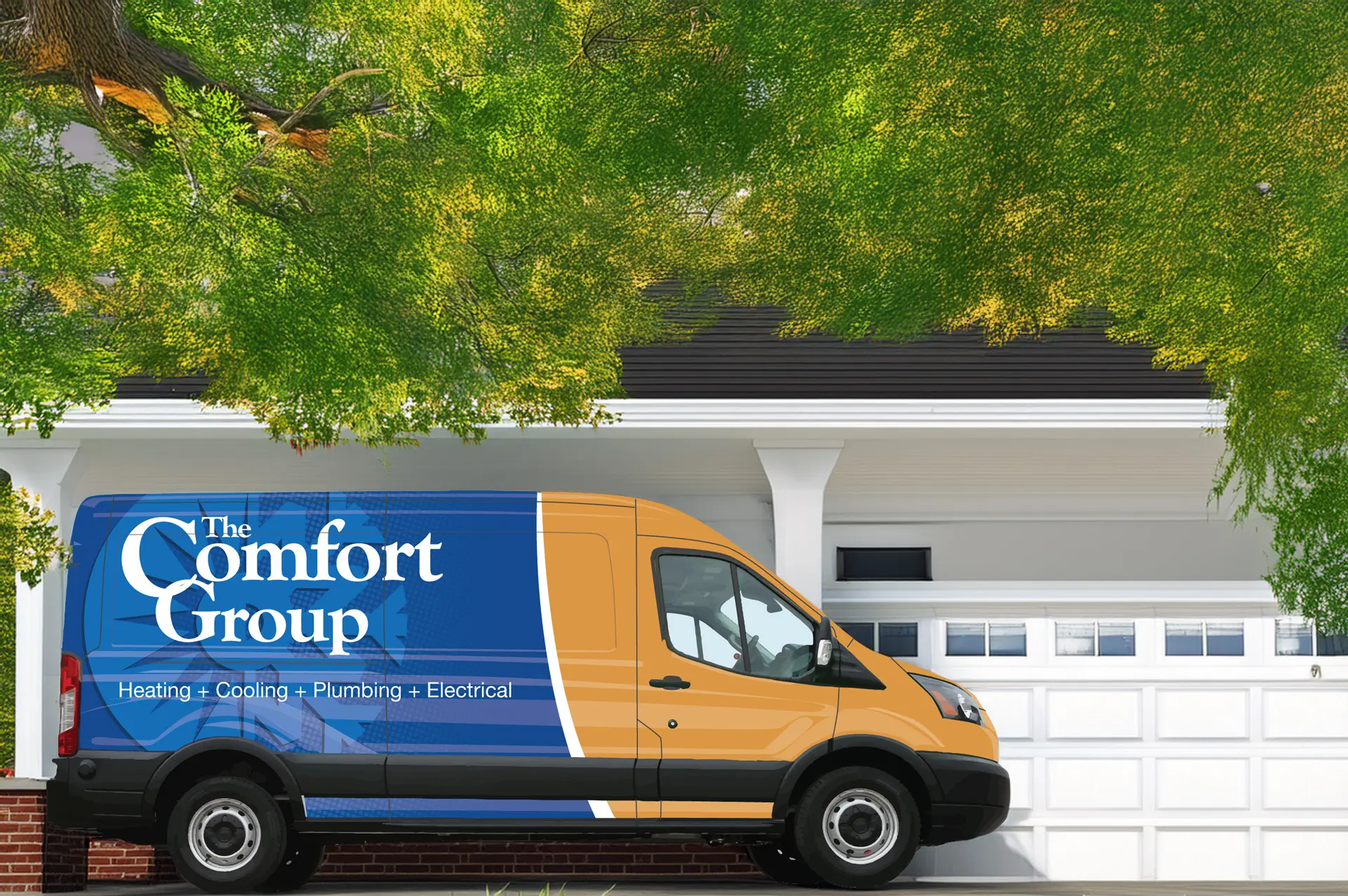
24/7 Emergency HVAC Service
Emergencies don’t follow a schedule, and neither do we. That’s why we offer 24/7 emergency HVAC services to ensure you’re never without heat, air conditioning, or essential plumbing. Our responsive technicians are always ready to restore your home’s comfort systems when you need them the most.
Certified, Background-Checked Professionals
At The Comfort Group, all of our technicians undergo comprehensive training, certification, and background checks. When you invite our team into your home, you can trust that they are skilled professionals dedicated to delivering reliable service and taking care of your needs.
Upfront, No-Surprise Pricing
We believe in transparency, which is why we provide detailed estimates before any work begins. You’ll never face unexpected charges or hidden fees. We respect your budget and make sure you understand the investment required for your HVAC services.
Satisfaction Guaranteed
At The Comfort Group, we don’t just provide heating and cooling services – we deliver results you can count on. If our work doesn’t meet your expectations, we’ll take the necessary steps to fix it. Our goal is your complete satisfaction, and we’re dedicated to making sure your home stays comfortable, no matter what.
Complete Home Comfort Solutions
We provide more than just HVAC services. From plumbing and electrical to air quality and water systems, we offer comprehensive solutions that ensure all of your home’s systems work harmoniously together, delivering ultimate comfort and functionality.
Hear from Vancouver Island Homeowners Who Choose The Comfort Group Services
Casey and Doug completed a service, were very helpful after in following up with information on the service and with sending reports
A pleasure to have the team that installed my system.
